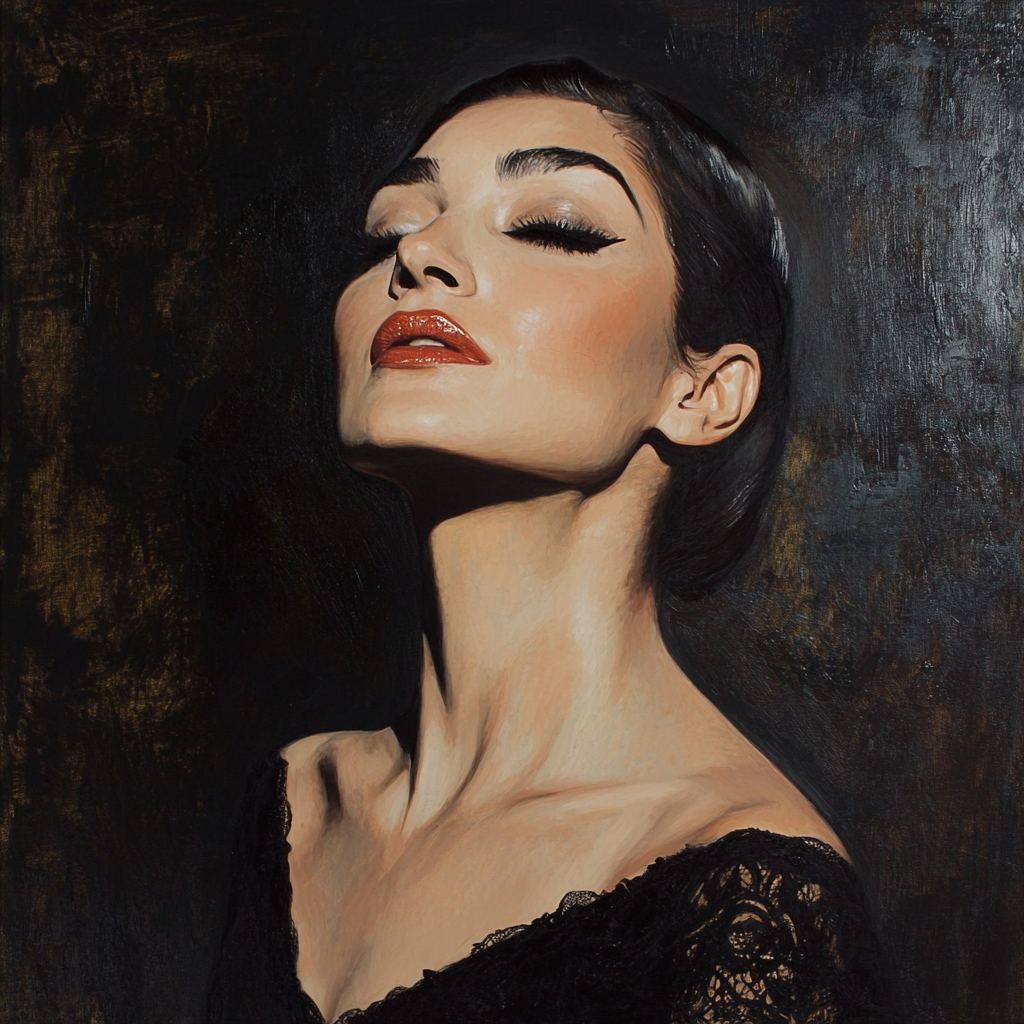¶ Maria Callas: The Biggest Legend of Opera

¶ Introduction
Maria Callas, or Maria Anna Cecilia Sofia Kalogeropoulos, was born on December 2, 1923, in New York City to Greek immigrant parents, George Kalogeropoulos and Evangelia "Litsa". She was an exceptional Greek-American soprano whose influence on the world of opera remains unparalleled. Renowned for her extraordinary vocal abilities and captivating stage presence, Callas left a lasting mark on the opera landscape. She is known until today as “The Divine”.
¶ Early Life
She was raised by an overbearing mother who had wanted a son. Callas's father had shortened the surname Kalogeropoulos, first to "Kalos" and subsequently to "Callas" to make it more manageable.
Callas's family moved back to Greece when she was 13 years old, and she began her musical education at the Athens Conservatory. She studied with soprano Elvira de Hidalgo, who trained her in the tradition of the bel canto romantic Italian style. Callas made her professional debut in 1941 in Athens, and she quickly gained a reputation as a talented and versatile soprano.
Callas's early life was marked by both privilege and hardship. Her family was relatively wealthy, but she also experienced the poverty and deprivation of wartime Greece. She was also near-sighted, which left her nearly blind onstage. Despite these challenges, Callas persevered and developed into one of the greatest opera singers of all time.
¶ Career and Achievements
Callas' career as an opera singer spanned the 1940s to the 1960s, during which she graced some of the most prestigious opera houses around the globe. Her interpretations of iconic roles in operas such as "La Traviata," "Norma," and "Tosca" garnered widespread acclaim, earning her the reputation of a true virtuoso. Critics praised her ability to infuse emotion and depth into her performances, making her characters come to life with unparalleled authenticity.
¶ Artistic Impact
Beyond her vocal prowess, Callas's artistic impact extended to her deep commitment to her craft. Known for her dedication and hard work, she immersed herself in the characters she portrayed, delving into their complexities to deliver spellbinding performances. Her ability to evoke a wide range of emotions, from heart-wrenching vulnerability to fiery intensity, connected her with audiences on a profound level.
¶ Personal Life
The personal life of Maria Callas was subject to intense public scrutiny, especially due to her relationship with the shipping magnate Aristotle Onassis, which began when both were married. Onassis was far from having the grace and elegance of Callas (in fact, he was a rough and unattractive man), but he was deeply in love with her. However, he never wanted to marry her officially, even after divorcing Tina Livanos, his first wife. The tumultuous romance captured the attention of the media and the public. The complex dynamics between the couple brought moments of joy and sorrow, but Callas navigated this challenging phase of her life with resilience.
¶ Death
Maria Callas died on September 16, 1977, at the age of 53. The official cause of death was a heart attack, but there is speculation that she may have committed suicide. Callas had been suffering from depression and anxiety for many years, and she had recently been through a number of personal and professional setbacks. Her death was a shock to the opera world, and she is still mourned by fans and critics alike.
¶ Legacy
Maria Callas' impact on opera and her role as an inspiring figure in the face of trials make her a legend in the world of music. Her profound artistry and the lasting impression she left on the opera community continue to be celebrated and cherished. As we remember her contributions, we honor the woman who defied conventions and pursued her passion with fervor, leaving a lasting legacy that inspires generations to come.
¶ “Maria”, the 2024 movie
In his review for El País, Carlos Boyero states that Pablo Larraín's film Maria Callas presents a hieratic and pretentious portrait of the renowned soprano, failing to move the audience or convey the tragedy of its protagonist. Despite the beauty and magnetism of Angelina Jolie in the lead role, Boyero points out that the narrative feels cold and monotonous, lacking empathy for the desolate opera diva. The critic concludes that, although Jolie's performance is remarkable, the film as a whole feels dispensable and devoid of emotional depth.